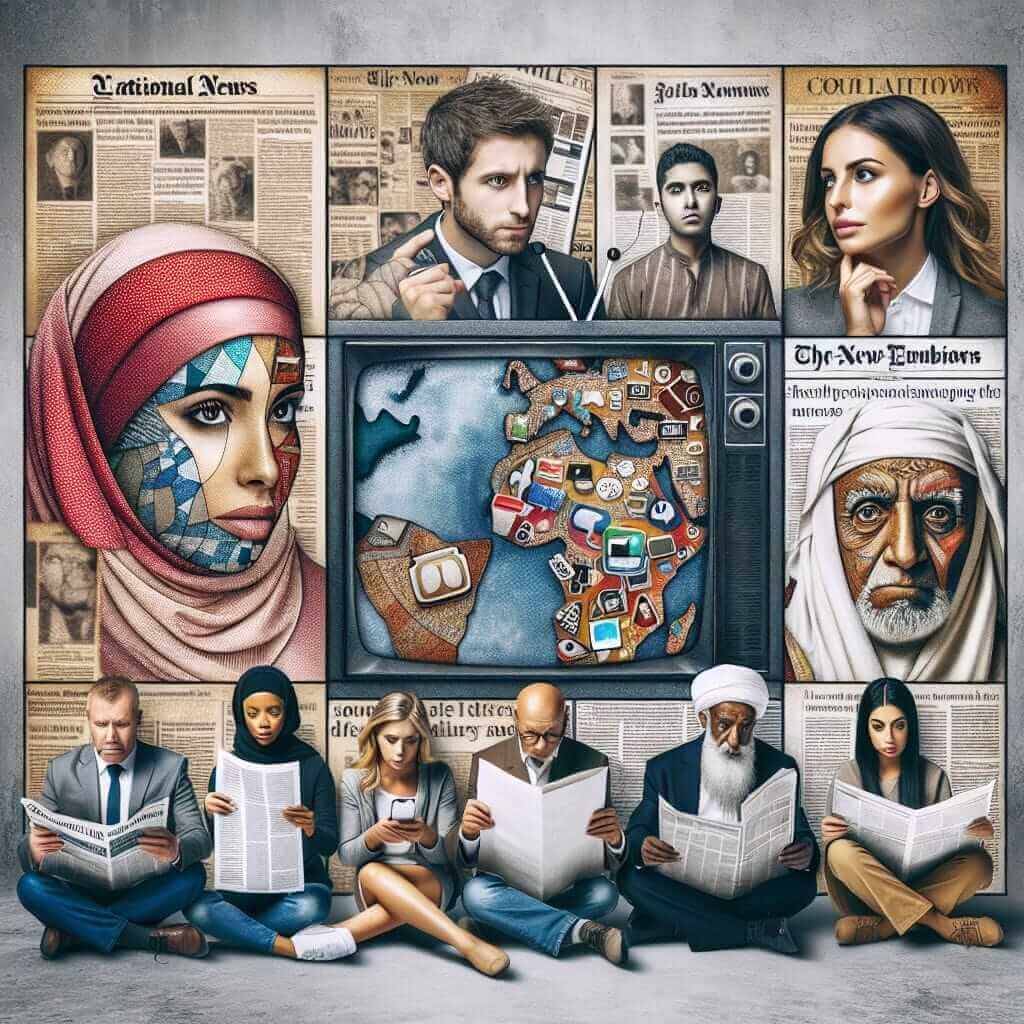The pervasive influence of media in the modern world makes it a recurring theme in IELTS Writing Task 2 essays. Understanding how to effectively discuss “the role of the media in shaping public opinion” is crucial for achieving a high band score. This comprehensive guide will equip you with the necessary tools, including a sample essay and detailed analysis, to confidently tackle this topic.
Here are some potential essay questions you might encounter:
- To what extent do you agree or disagree that the media has the power to shape public opinion?
- Discuss the positive and negative impacts of media on people’s views.
- With the rise of social media, is traditional media losing its influence?
Sample Essay Analysis:
Let’s analyze the first question:
Question:
To what extent do you agree or disagree that the media has the power to shape public opinion?
Analysis:
This question requires you to present a clear stance on the power of media. You need to explore both sides of the argument, providing compelling reasons and examples to support your viewpoint.
Essay:
It is an undeniable fact that the media wields considerable influence over public opinion. While some argue that its impact is waning in the face of independent online platforms, I firmly believe that media continues to play a pivotal role in molding the perspectives of the masses.
Proponents of media’s diminishing influence often cite the rise of social media and citizen journalism. They argue that individuals are no longer passive recipients of information but active participants who can choose what they consume and share. While this is partially true, it fails to acknowledge the sheer reach and resources at the disposal of established media outlets. Newspapers, television channels, and prominent news websites still command a vast audience, shaping narratives and setting the agenda for public discourse.
Furthermore, the media possesses sophisticated tools of persuasion. Through carefully crafted language, selective reporting, and emotive imagery, news outlets can subtly influence public perception of events and individuals. The repetition of certain viewpoints, often aligned with specific political or economic agendas, further reinforces these biases. For instance, consistent negative portrayal of a particular political party can sway public sentiment against them, influencing voting patterns.

However, it is important to acknowledge that the media’s influence is not absolute. Individuals are not mere puppets; their existing beliefs, values, and personal experiences also play a significant role in shaping their opinions. Moreover, increased media literacy and access to diverse sources of information have made people more discerning consumers of news.
In conclusion, while individuals are not entirely susceptible to media manipulation, the media undeniably holds significant sway over public opinion. Its vast reach, persuasive techniques, and ability to set the agenda for public discourse make it a powerful force in shaping societal attitudes and behaviors. (Word count: 288)
Key Writing Tips:
- Clear Position: State your stance clearly in the introduction and maintain it throughout the essay.
- Balanced Argument: Acknowledge both sides of the argument, even when presenting a strong viewpoint.
- Supporting Evidence: Use relevant examples, statistics, or historical events to support your claims.
- Vocabulary Enhancement: Employ a wide range of vocabulary related to media and influence.
- Cohesive Devices: Utilize linking words and phrases to ensure a smooth flow of ideas.
Difficult Vocabulary:
- Incontrovertible (adjective) /ˌɪn.kɑːn.trəˈvɝː.t̬ə.bəl/: Not able to be denied or disputed.
- Pervasive (adjective) /pɚˈveɪ.sɪv/: Spreading widely throughout an area or group of people.
- Wield (verb) /wiːld/: To have and be able to use power or influence.
- Waning (adjective) /ˈweɪ.nɪŋ/: Becoming weaker or less important.
- Proponents (noun) /prəˈpoʊ.nənts/: People who speak publicly in support of a particular idea or plan of action.
- Citizen journalism (noun): The collection, dissemination, and analysis of news and information by the general public, especially by means of the Internet.
- Sophisticated (adjective) /səˈfɪs.tɪ.keɪ.t̬ɪd/: Highly developed and complex.
- Persuasion (noun) /pɚˈsweɪ.ʒən/: The action of persuading someone or of being persuaded to do or believe something.
- Emotive (adjective) /ɪˈmoʊ.t̬ɪv/: Arousing or able to arouse intense feeling.
- Discerning (adjective) /dɪˈsɝː.nɪŋ/: Having or showing good judgment.
Conclusion:
Mastering the ability to discuss “the role of the media in shaping public opinion” is essential for success in the IELTS Writing Task 2. Remember to present a clear stance, support your arguments with evidence, and utilize a diverse range of vocabulary. Practice writing essays on various media-related topics to hone your skills and boost your confidence.